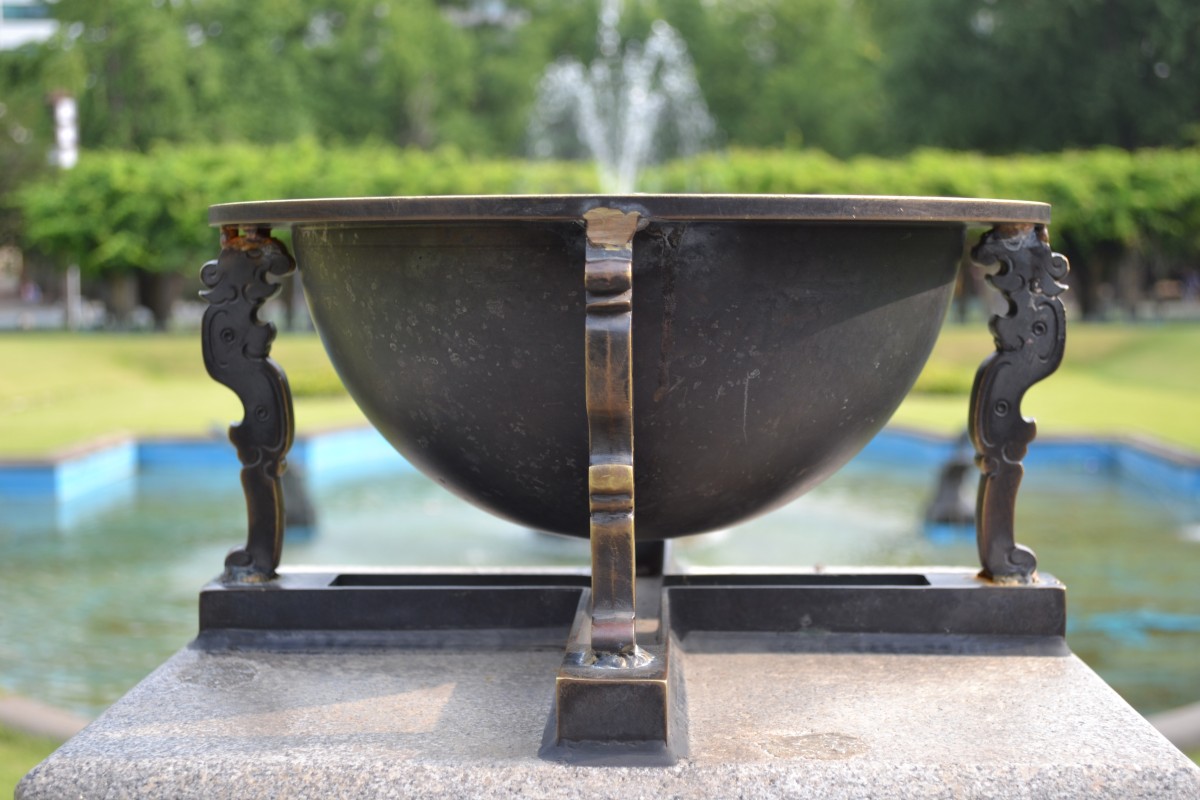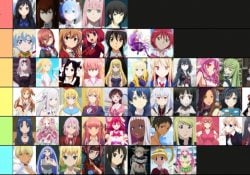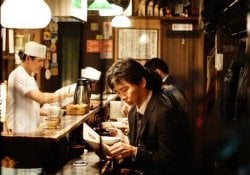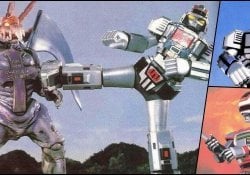Have you ever wondered what time it is in Korea? Perhaps you are planning a trip to Seoul or just curious about the Korean time zone. In this article, we will dive into the time in Korea, its peculiarities, and interesting facts.
It is worth mentioning and recommending our previous article that specifically talks about the Japanese time schedule. We recommend reading the article entitled: What time is it in Japan? Understand Japanese Time
Índice de Conteúdo
KST (Korea Standard Time)
The official time in Korea is called KST, which stands for Korea Standard Time, known in Korean as 한국 표준시 (Hangook Pyojunsi). Korea's time zone is UTC/GMT +9, which means it is 12 hours ahead of Brazil (UTC -3).
It is interesting to note that Korea, like Japan, does not observe daylight saving time. Therefore, the time difference remains constant throughout the year. If it is 3 o'clock in the afternoon in Brazil, it will be 3 o'clock in the morning the next day in Korea.
In addition to Japan, Korea shares its time zone with Indonesia and some regions of Russia, such as Yakutsk. The sunrise in Seoul, for example, occurs around 05:30, while the sunset happens around 19:30, varying according to the season.

Time in Korea - Differences and Curiosities
Just like in Japan, Korea also has the practice of surpassing 24:00 hours in certain situations. In Korea, this is common in TV schedules, work hours, and even in public transportation, making it easier to understand that activities continue into the early hours of the morning without changing the date.
12-Hour Clock in Everyday LifeAlthough the official system is 24-hour, in daily life, Koreans often use the 12-hour system, especially in informal conversations. They differentiate between morning and afternoon using "오전" (before noon) and "오후" (after noon).
Historical Influence on Time MeasurementDuring the period of Chinese influence, Korea adopted the zodiacal system to count the hours, which is a reflection of the culture and philosophy shared with China. This ancient system divided the day and night into 12 periods, each named after the signs of the Chinese zodiac.
Cultural Meaning of Hours: Certain hours have cultural significance in Korea. For example, 4:44 in the morning or afternoon is often avoided, as the number "four" is associated with death in Korean culture.
Daylight Saving TimeSouth Korea briefly experienced daylight saving time from 1948 to 1951 and again from 1987 to 1988, but since then, it has not adopted the time change, maintaining the same standard time throughout the year.
The History of Time and Clocks in Korea
In pre-modern Korea, time was measured differently from Western conventions. The traditional Korean system uses the Korean zodiac to divide the day and night into 12 periods each. This system is called "시경제" (Sikyeongje), in which the duration of each cycle changes according to the seasons, as they are calculated based on the amount of sunlight.
Before modernization, Korea followed a traditional time system, where each region had its own time calculation based on the sun. With the adoption of the standard time zone, Korea simplified time measurement throughout the country, especially after the expansion of the railway network.
Clocks were introduced in Korea in the 17th century, but it was during the period of Japanese influence that the country adopted the current time zone. Before that, Korea had water clocks and sundials, reflecting a traditional way of measuring time.
Water clocks and sundials
The Koreans used water clocks called "물시계" (Mulsigye), common in Asia, to measure time by the flow of water. These devices were highly complex and crucial for counting the hours in palaces and temples. The most famous water clock in Korea, the Jagyeongnu, was invented in the 15th century and was considered one of the most advanced water clocks of its time.
In addition to water clocks, sundials called "해시계" (Haesigye) were also used to measure time during the day, especially in public places and temples.

Foreign Influences and Modernization
During the Joseon period, especially in the last centuries, Korea began to have contact with Western technologies, including mechanical clocks. This foreign influence accelerated the modernization of the time measurement system in the country.
At the end of the 19th century and the beginning of the 20th century, Korea began to adopt the 24-hour solar time system, more aligned with international conventions. This movement was part of the modernization and Westernization reforms.
Standardization of Time Zone
The standardization of the time zone in Korea occurred during the period of Japanese occupation in the early 20th-century when Korea was unified under the GMT+9 time zone, the same as Japan. This change was kept after independence and remains the standard until today.
The history of time and clocks in Korea is a testimony to the social, cultural, and technological changes in the country. From traditional methods of time measurement to the adoption of international standards, the Korean time system reflects the rich history and modernization of Korea.
The article is still halfway through, but we recommend also reading:
How to say the hours in Korean?
Korean has two numerical systems, one native (숫자) and another sino-Korean (한자). To tell the time, the sino-Korean system is usually used. For example, "three o'clock" is "세 시" (se shi), where "세" (se) is three in sino-Korean.
For hours, use the number followed by "시" (shi), which means hour. For minutes, the number is followed by "분" (bun). For example, "3:15" would be "세 시 십오 분" (se shi ship-o bun).
Time of DayKorea also uses the terms "오전" (ojeon) for a.m. (before noon) and "오후" (ohu) for p.m. (after noon). Therefore, "9:00 a.m." would be "오전 아홉 시" (ojeon ahop shi). Midnight is expressed as "자정" (jajeong), and noon as "정오" (jeong-o).
To say "quarter of an hour", as in "quarter to three" or "three fifteen", Koreans say "삼시 십오분" (samsi ship-obun) for 3:15 or "삼시 사십오분" (samsi saship-obun) for 2:45, respectively. When referring to an exact time, like "at three o'clock", you simply say "세 시" (se shi).
Time difference between Korea and the rest of the world
Korea has the same time zone as Japan, Indonesia, Timor-Leste and Yakutsk (Russia). Korea is 1 hour ahead of China and 2 hours ahead of Australia.
The list below shows the time difference between Korea and other major cities and countries around the world:
- Bulgaria (-7 hours)
- Croatia (-8 hours)
- Czech Republic (-8 hours)
- Denmark (-8 hours)
- England (-9 hours)
- France (-8 hours)
- Germany (-8 hours)
- Greece (-7 hours)
- Netherlands (-8 hours)
- Italy (-8 hours)
- Latvia (-7 hours)
- Portugal (-9 hours)
- Russia (-6 hours)
- Spain (-8 hours)
- Sweden (-8 hours)
- Switzerland (-8 hours)
- Ukraine (-7 hours)
- Accra (-9 hours)
- Angola (-8 hours)
- Argentina (-12 hours)
- Auckland (+4 hours)
- Beijing (-1 hour)
- Cairo (-7 hours)
- Costa Rica (-15 hours)
- Dallas (-15 hours)
- Doha (-6 hours)
- Dublin (-9 hours)
- Djibouti (-6 hours)
- Esfahan (-5.30 hours)
- Ghana (-9 hours)
- Hanoi (-2 hours)
- Hong Kong (-1 hour)
- Iran (-5.30 hours)
- Ireland (-9 hours)
- Jakarta (-2 hours)
- Johannesburg (-7 hours)
- Korea (0)
- Kyiv (-7 hours)
- Las Vegas (-17 hours)
- Lome (-9 hours)
- Los Angeles (-17 hours)
- Luanda (-8 hours)
- Madrid (-8 hours)
- Malaysia (-1 hour)
- Mexico (-15 hours)
- Montreal (-14 hours)
- Moscow (-6 hours)
- New Delhi (-3:30 hours)
- New York (-14 hours)
- Oklahoma City (-15 hours)
- Orlando (-14 hours)
- Ottawa (-14 hours)
- Paraguay (-12 hours)
- Philadelphia (-14 hours)
- Port of Spain (-13 hours)
- Reykjavik (-9 hours)
- Rio de Janeiro (-11 hours)
- Saudi Arabia (-6 hours)
- Seoul (0)
- Shanghai (-1 hour)
- Singapore (-1 hour)
- Sydney (+2 hours)
- Tbilisi (-5 hours)
- Tehran (-5.30 hours)
- Thailand (-2 hours)
- Toronto (-14 hours)
- Tunisia (-8 hours)
- United Kingdom (-9 hours)
- Vancouver (-17 hours)
- Vladivostok (+1 hour)
- Wellington (+4 hours)
- Winnipeg (-15 hours)
- Yamousoukro (-9 hours)







